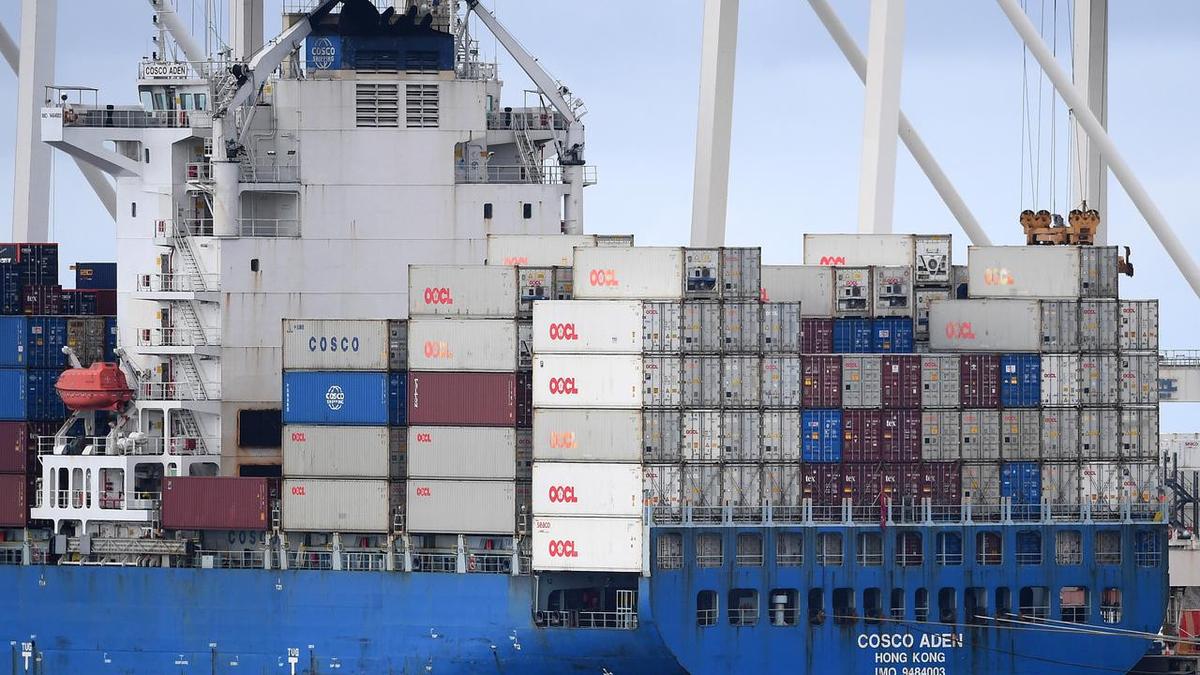The looming threat of increased US tariffs on goods from Australia’s trading partners has sparked concerns about the potential impact on the Australian economy. With US President Donald Trump announcing 25 per cent tariffs on items from Japan and Korea, which are significant export markets for Australia, the repercussions could be far-reaching.
Australia, while currently spared from direct tariffs, remains vulnerable to the ripple effects of these trade tensions. Monash University economics lecturer Isaac Gross highlighted the potential risks, particularly for Australian exporters heavily reliant on markets such as Japan and South Korea. Iron ore, a key Australian export to these countries, plays a crucial role in their manufacturing industries, especially in producing vehicles destined for the US market.
Dr. Gross emphasized that a decrease in demand for Australian iron ore due to a slump in car sales in the US could lead to lower prices, impacting major mining companies like BHP and Rio Tinto. This, in turn, could result in reduced corporate tax contributions and overall economic activity, potentially affecting the Australian dollar’s value and government revenue.
“The principal way that affects the Australian economy is through a lower Australian dollar and less tax revenue,” Dr. Gross explained. “That would affect Australians as a whole … it would definitely hurt the government’s budget line and reduce economic activity, especially in the mining states.”
Despite the potential drawbacks, there might be a silver lining for Australian consumers. The influx of South Korean or Japanese goods, redirected from the US market, could lead to discounted prices in Australia. However, the situation remains uncertain, given the unpredictable nature of President Trump’s trade policies.
University of Sydney associate professor David Smith highlighted the frustration among countries engaging in trade negotiations with the US, citing the sudden shifts in policy direction by the Trump administration. The erratic behavior in trade decisions has left many nations bewildered and struggling to anticipate the next move.
As pressure mounts on Prime Minister Anthony Albanese to secure a face-to-face meeting with President Trump and seek a total tariff exemption, doubts linger about the effectiveness of such diplomatic efforts. The experiences of other world leaders, like Japanese Prime Minister Shigeru Ishiba, who faced increased tariffs despite prior engagements with President Trump, add to the skepticism surrounding negotiation outcomes.
Assoc Prof Smith raised concerns about the complexity of the current trade landscape, with the US simultaneously pursuing multiple trade deals, leading to challenges in effective negotiation and decision-making. Trump’s tendency to blame other countries for slow progress and resorting to tariff escalations further complicates the already strained global trade environment.
The evolving dynamics of international trade relations underscore the need for strategic diplomacy and proactive engagement to navigate the uncertainties posed by tariff wars. As countries strive to safeguard their economic interests amidst escalating trade tensions, the delicate balance of power and negotiation strategies will play a pivotal role in shaping the future of global trade dynamics.









Leave feedback about this